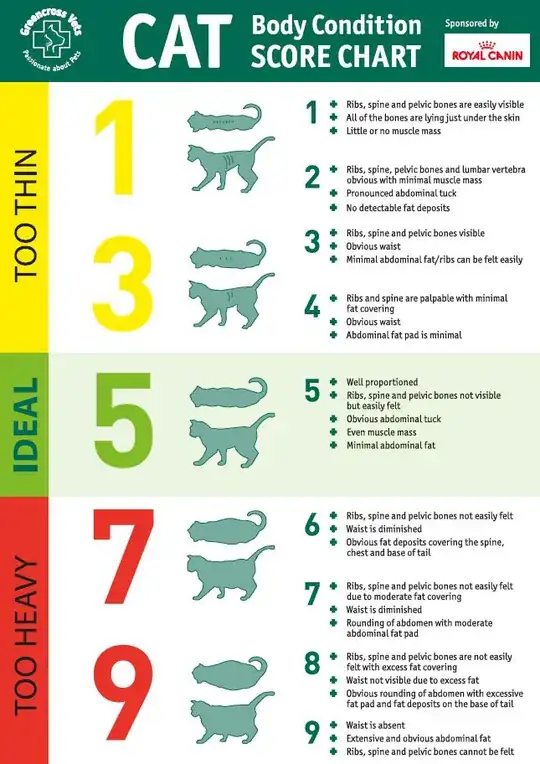In addition to answers already here:
There is no correct answer, that does not include "depends on the cat, you and some other things". Like
But "in dubio pro reo", or "in doubt for the accused"
I grew up with many cats - I think about 60 all over my life till now - many where the cats of my mother when I was a child. I am around 50 now. I live know in Greece, ... some cats around.
What I have learned: they are all different and as long as they are not sick (any kind - including psycho) the do not eat too much.
And as long as you are not sick (any kind - including psycho), this is still true. (yes you and the cat are somehow a team)
And yes, as other mentioned, keep an eye on the weight of the cat, if it gets to fat,
- go to a doctor (you)
- go to a doctor (cat)
I remember many of the cats in my life, there were only a few cats getting fat, one had a big problem with the other cats in the house, was eating every plate clear, just to be sure ....
An other one had a prob with health.
And again, if the cat does not eat up all at once, good chance no problem.
Some stories:
We had a male cat (died with ~ 15 years, not fat, just old), we learned that 'he' does not have a problem, if we leave 'him' alone for 3 days as long as there is water and food. After this time being back, he came purring and half of the food was still here. (we found out after somebody died, we had no other chance, so don't call as bad to cats)
We have a cat know, (we grew her up with the bottle, we got her with 10 days, here mother left the nest with the other 5 babies), she comes 3 to 10 times a day, asking for stroke and food, most of the time just looking if there is food - just in case
And we have a dog - educated - does not touch cat food as long as it is in the cats plate ... on the floor doggy cleans all.
